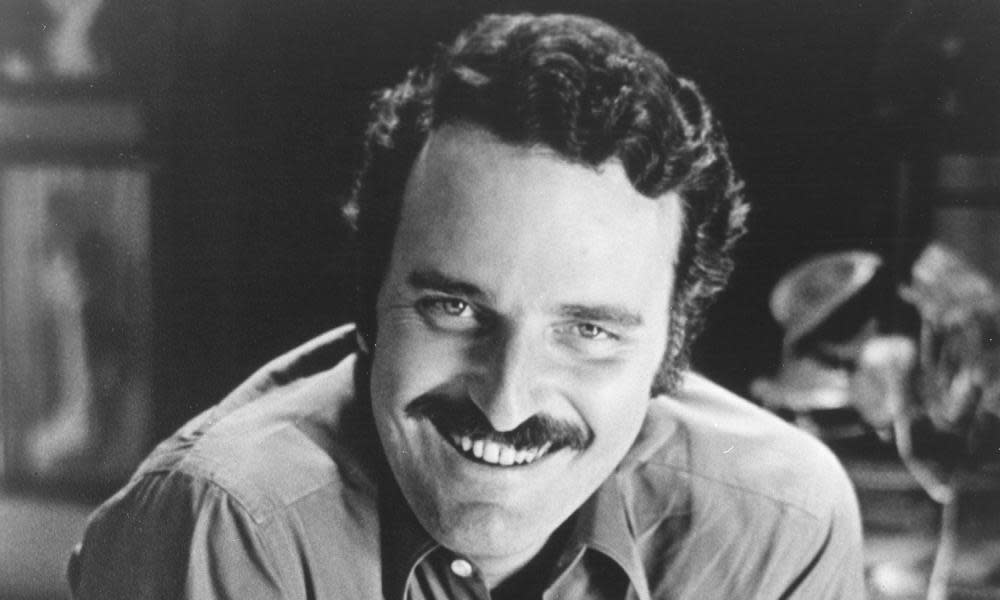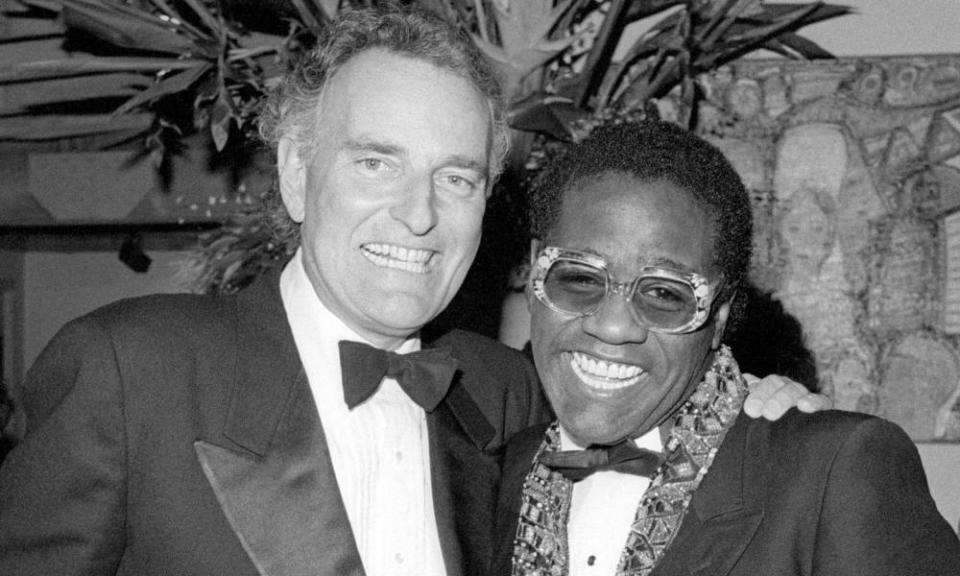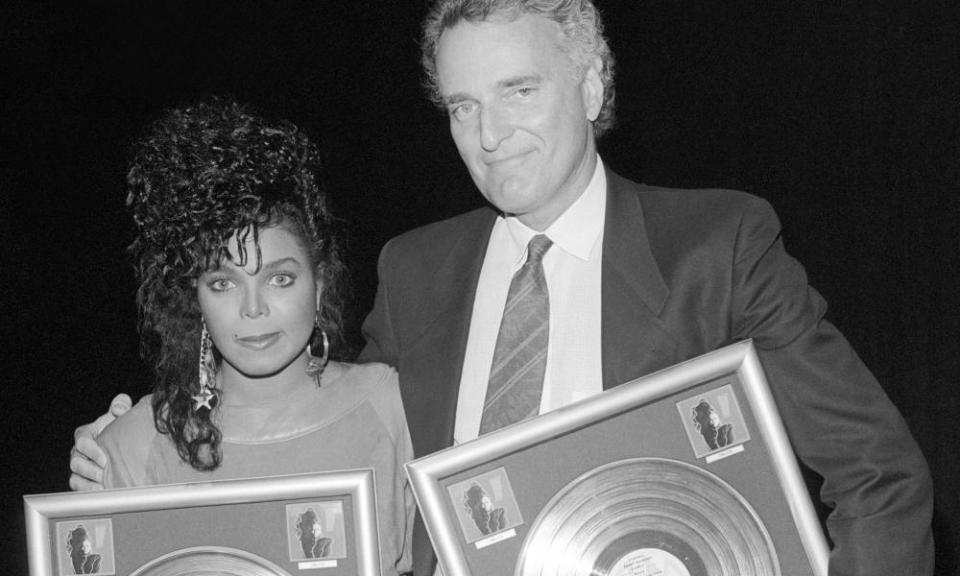Jerry Moss obituary

When a 50-1 outsider named Giacomo won the 2005 Kentucky Derby, it was not the first time that the horse’s owner, the American record company executive Jerry Moss, had defied the odds.
Moss, who has died aged 88, began his working life as a teenager paid $75 a week for getting doo-wop records played on New York radio stations. Three decades later he and his business partner, the trumpeter Herb Alpert, would sell the record label and publishing company they had founded for a reported $900m.
The Kentucky Derby winner was named after the youngest son of Sting, the singer with the Police. That group’s hits, and Sting’s solo work, were released on A&M, the label Alpert and Moss had started in 1961, at first based in the trumpeter’s garage, which contained a desk, a telephone and a two-track tape recorder. Their roster of hit-making artists would eventually include Alpert’s Tijuana Brass, Sérgio Mendes, the Carpenters, Joan Armatrading, Peter Frampton, Squeeze, Quincy Jones and Janet Jackson.
Remarkably, they achieved their success without attracting the accusations of sharp practice customarily aimed at record company bosses of their era. In the eyes of their artists and of the industry, they were an unusual partnership: a good cop and another good cop.
Moss was born in the Bronx, New York, the son of Rose and Irving Moss, a department store salesman. After graduating from Brooklyn College, he was waiting on customers at a resort club when his personality impressed Marvin Cane, a partner in the Coed label, who offered him a job and became his mentor. Over the next 18 months Moss learned the ins and outs of the music business at ground level, his weekly wage rising to $125 when a song called 16 Candles by the Crests, a multiracial vocal quartet, rose to No 2 in the national charts in 1959.

The following year Moss moved to Los Angeles. Turning down the offer of $35 a week to work in the mailroom of the William Morris Agency, a classic apprenticeship for aspiring show-business moguls, instead he struck out on his own as an independent promotion man. Soon a friendship with Alpert led to conversations about going into business together.
After early struggles, the breakthrough came in 1962 with Alpert’s Tijuana Brass, an instrumental group featuring mariachi-style trumpets backed by top Hollywood session musicians.
Their first hit was The Lonely Bull, a Mexican-styled tune delivered over the excited noise of a crowd at a corrida, reflecting the enthusiasm of A&M’s founders for visiting bullfights south of the border. Once the record showed signs of commercial promise, they borrowed the money to press several thousand copies. After that it was simply a question of getting the nation’s record distributors to pay them promptly, a vital aspect of their business that became Moss’s responsibility.
Soon they were adding staff and moving to offices on Sunset Boulevard. The Sandpipers’ Guantanamera, a Cuban song from the 1920s, and The More I See You, by the Mexican-American singer Chris Montez, were other early hit singles, while A&M’s credibility as an album label was established when, in 1966, the Tijuana Brass had five LPs in the US Top 20 at the same time. That year they also signed the pianist Mendes and his group Brasil ’66, whose smoothly reupholstered version of bossa nova provided hit albums and singles, notably with Mas Que Nada and The Fool on the Hill.
A visit to the Monterey pop festival in 1967 convinced Moss of the need to move beyond the sort of soft rock and easy-listening music with which his label had become associated. Soon it was providing a home for the country-rock of the Flying Burrito Brothers and the dope-smoking comedians Cheech and Chong. From the UK, often through deals with the producers Denny Cordell and Chris Blackwell, came Joe Cocker, Procol Harum, Humble Pie and Cat Stevens.

By the time the Carpenters arrived in 1970, A&M had become the world’s largest independent record company, and to house their expanding operation, Alpert and Moss paid $1m for a property on North LaBrea Avenue which had been the home of Charlie Chaplin’s film company. The Carpenters’ string of worldwide hits began with Close to You, We’ve Only Just Begun and Rainy Days and Mondays, featuring the affecting contralto of Karen Carpenter, artfully arranged by her brother Richard. Carole King’s Tapestry was also distributed in the US via A&M in 1971, going on to sell 30m copies.
In 1976 the British singer and guitarist Frampton, formerly of Humble Pie, recorded an in-concert double album, Frampton Comes Alive, which went platinum eight times over in the US. After plundering the UK new wave for Joe Jackson and Squeeze, A&M then saw the Police become the world’s biggest band with such hits as Roxanne and Every Breath You Take.
Sting’s solo career would yield many more hit albums and singles. Jones’s albums for the label included the platinum-selling Sounds … and Stuff Like That in 1978, while Janet Jackson’s 1986 album Control sold more than 10m copies.
In 1989 Alpert and Moss sold their label to PolyGram, the Dutch-German conglomerate, for around $500m, remaining involved for a further four years. Later they received a further $200m from PolyGram in settlement of a lingering dispute. Rondor Music, their song publishing arm, was sold for $400m.
After leaving A&M to its new owners, they formed a new label, Almo Sounds, on which between 1994 and 2000 they released hits by Garbage, the grunge quartet fronted by the Scottish singer Shirley Manson, and albums by the admired alt-country singer Gillian Welch. In 2006 Alpert and Moss were jointly inducted into the Rock and Roll Hall of Fame.
Moss collected paintings, bred racehorses and pursued philanthropic projects. In 2020 he and his wife, Tina, donated $25m to the Los Angeles Music Centre.
His first two marriages, to Helen Rusetos and Ann Holbrook, ended in divorce. He is survived by Tina (nee Morse), whom he married in 2015, and by four children, five grandchildren and two great-grandchildren.
• Jerry (Jerome Sheldon) Moss, record company boss, born 8 May 1935; died 16 August 2023

 Yahoo News
Yahoo News 
